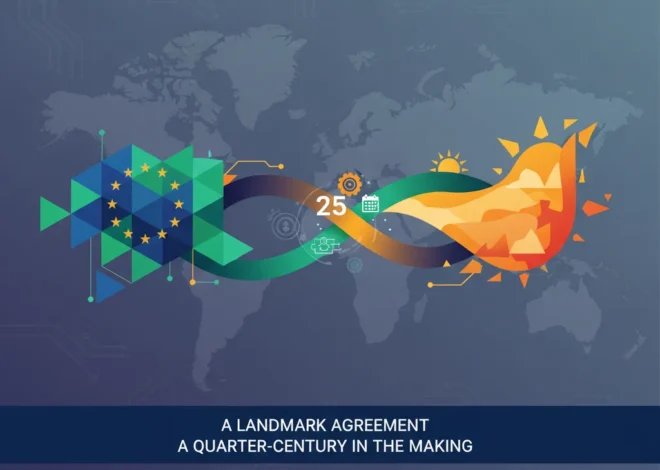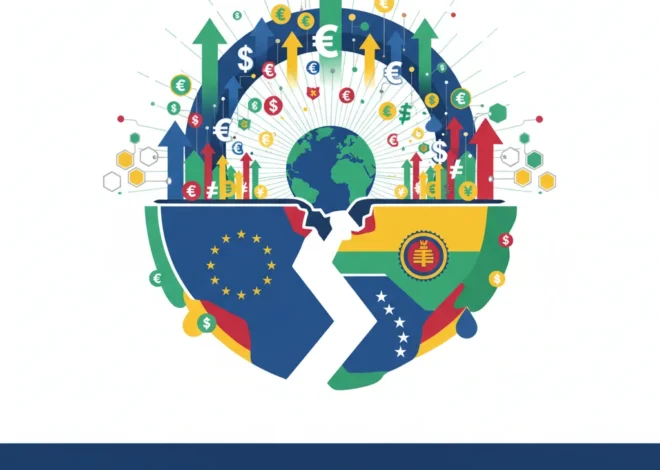
EU vs. China: A New Economic Iron Curtain? What Investors Need to Know
A Tectonic Shift in Global Investing: Europe Raises its Defenses
The era of unbridled globalization, where capital flowed freely across borders with minimal friction, is officially over. A new chapter in the global economy is being written, and the European Union is holding the pen. In a move that signals a seismic shift in its economic strategy, the European Commission is drawing up plans to significantly tighten rules on foreign investment. The primary goal, as reported by the Financial Times, is to ensure that foreign companies setting up shop within the 27-member bloc deliver greater benefits to local workers and, crucially, prevent the unwanted transfer of sensitive technology. While the language is diplomatic, the unspoken target is clear: China.
This isn’t just a minor regulatory tweak; it’s a fundamental re-evaluation of Europe’s place in the world. For decades, the EU championed open markets and free trade. Now, it’s building a fortress around its most critical assets. For investors, finance professionals, and business leaders, understanding this pivot is not just important—it’s essential for survival and success in the new geopolitical landscape. This policy shift will create ripples across the stock market, influence corporate strategy, and redefine the very nature of international investing.
From ‘Market Access’ to ‘Economic Security’: The Why Behind the Shift
To grasp the magnitude of this change, we must look back. For years, the EU’s relationship with China was defined by a simple mantra: market access. European companies wanted access to China’s billion-plus consumers, and China wanted access to European technology and capital. However, this relationship has grown increasingly imbalanced. European leaders now voice concerns that have long been simmering beneath the surface:
- Lack of Reciprocity: European firms in China often face significant hurdles, including pressure to form joint ventures and share proprietary technology, conditions not typically imposed on Chinese firms in Europe.
- State-Subsidized Competition: The rise of Chinese corporate giants, often heavily backed by the state, has created an uneven playing field, allowing them to acquire European assets, particularly in strategic sectors.
- Strategic Dependencies: The COVID-19 pandemic and Russia’s invasion of Ukraine laid bare Europe’s dangerous reliance on foreign powers for critical goods, from medical supplies to energy and microchips.
The new proposals are a direct response to these anxieties. The EU is moving from a purely economic calculus to one of “economic security.” The goal is no longer just about fostering trade but about protecting the bloc’s industrial base, technological sovereignty, and long-term resilience. This is the core of President Ursula von der Leyen’s strategy of “de-risking, not decoupling” from China—a nuanced approach aimed at reducing critical dependencies without severing all economic ties.
Climate Clash at COP30: How Geopolitical Tensions Could Reshape Global Finance
Decoding the EU’s New Investment Playbook
The proposed changes represent a significant expansion of the EU’s existing foreign direct investment (FDI) screening mechanism, established in 2020. While the previous framework encouraged member states to review investments on security grounds, the new proposals aim to harmonize and strengthen these rules across the bloc. The focus is shifting from merely flagging problematic takeovers to proactively setting conditions on “greenfield” investments—new projects built from the ground up.
The new strategy rests on several key pillars, designed to protect Europe’s economic and technological interests while still attracting beneficial investment.
| Pillar of the New Strategy | Objective and Implications |
|---|---|
| Enhanced Investment Screening | Harmonizing screening rules across all 27 member states to prevent investors from exploiting loopholes in countries with laxer regulations. This will cover a wider range of sectors, including critical technologies like AI, quantum computing, and advanced robotics. |
| Outbound Investment Controls | A groundbreaking move to monitor and potentially restrict European companies from investing in sensitive technology sectors *in* countries of concern. This mirrors recent actions by the United States and is designed to prevent European capital and know-how from contributing to the military and technological advancement of strategic rivals. |
| Focus on “Positive Conditionality” | This is the core of the new proposal for greenfield investments. Foreign investors may be required to commit to specific conditions, such as hiring a certain percentage of local workers, investing in local R&D, or guaranteeing that sensitive intellectual property remains within the EU. This moves beyond a simple “yes/no” approval to a more negotiated approach. |
| Export Controls on Dual-Use Technologies | Strengthening controls on the export of “dual-use” goods and technologies—those with both civilian and military applications. This is critical for preventing European innovations in areas like advanced materials or financial technology from being weaponized. |
The Ripple Effect: Impact on Finance, Trading, and Technology
The implications of this strategic shift are far-reaching and will be felt across the entire financial ecosystem. Investors and business leaders must prepare for a new reality.
For Investors and the Stock Market:
A new layer of geopolitical risk is now permanently priced into European assets. The stock market will likely react with increased volatility to announcements related to investment screening or trade tensions. Sectors deemed “strategic”—such as semiconductors, green energy, artificial intelligence, and biotechnology—could see valuations influenced more by regulatory protectionism than by pure market fundamentals. Investors will need to conduct deeper due diligence, assessing not just a company’s balance sheet but also its vulnerability to supply chain disruptions and its position within the EU’s new economic security framework. This new paradigm of economics puts a premium on political and regulatory analysis in any sound investing strategy.
The £20 Million Question: Why Do High-Finance Professionals Need So Much to Retire?
For the Fintech and Banking Sectors:
The financial technology (fintech) and banking sectors are directly in the crosshairs. As critical infrastructure, payment systems, digital identity solutions, and technologies like blockchain will be subject to intense scrutiny. Any foreign investment, particularly from non-allied states, into a European fintech startup could face significant regulatory hurdles. This could slow the pace of M&A activity but may also spur more homegrown investment and consolidation within the EU to create “European champions” capable of competing globally. The European Central Bank has already signaled its desire for greater strategic autonomy in digital payments, a sentiment that aligns perfectly with this broader security push (source).
For Multinational Corporations:
Global corporations, whether European, American, or Asian, will face a more complex and fragmented regulatory environment. Supply chains will need to be re-evaluated and potentially re-shored or “friend-shored” to allied countries to mitigate risk. The cost of doing business in Europe may increase due to new compliance burdens. Companies planning major greenfield investments will need to factor in new negotiations with national and EU-level authorities, treating them less like a simple transaction and more like a long-term partnership with binding commitments. According to a Rhodium Group report, Chinese FDI in Europe has already fallen to a near-decade low, a trend these new rules are likely to accelerate.
A Global Trend: The EU Is Not Alone
It’s important to view the EU’s actions not in isolation, but as part of a broader Western alignment on economic security. The United States has been aggressively using its Committee on Foreign Investment in the United States (CFIUS) for years to block or unwind acquisitions deemed a threat to national security. More recently, the Biden administration issued an executive order to screen and potentially block outbound US investments in sensitive Chinese tech sectors (source). Other allies, including the UK, Canada, and Australia, have all strengthened their own investment screening regimes.
This coordinated, though not always perfectly aligned, effort marks a concerted push by developed nations to rewrite the rules of global commerce to favor security and resilience over pure efficiency and profit. The era of assuming that economic integration would lead to political convergence is definitively over.
The 5 Business Crises Shaping Tomorrow's Leaders: What Top Professors Are Teaching Now
Conclusion: Navigating the New Geopolitical Economy
The EU’s plan to tighten its investment rules is more than just a headline; it’s a declaration of a new era. The bloc is belatedly waking up to the realities of a multipolar world where economic tools are increasingly used as weapons of geopolitical influence. For those in finance, business, and technology, the message is clear: the rules of the game have changed.
Navigating this new terrain will require a more sophisticated approach to risk management, a deeper understanding of political dynamics, and a willingness to adapt business models to a more fragmented world. The free-flowing capital of the last thirty years is becoming more discerning, more conditional, and more political. The drawbridge to Fortress Europe isn’t being pulled up entirely, but from now on, anyone wishing to enter will find a far more watchful guard at the gate.


